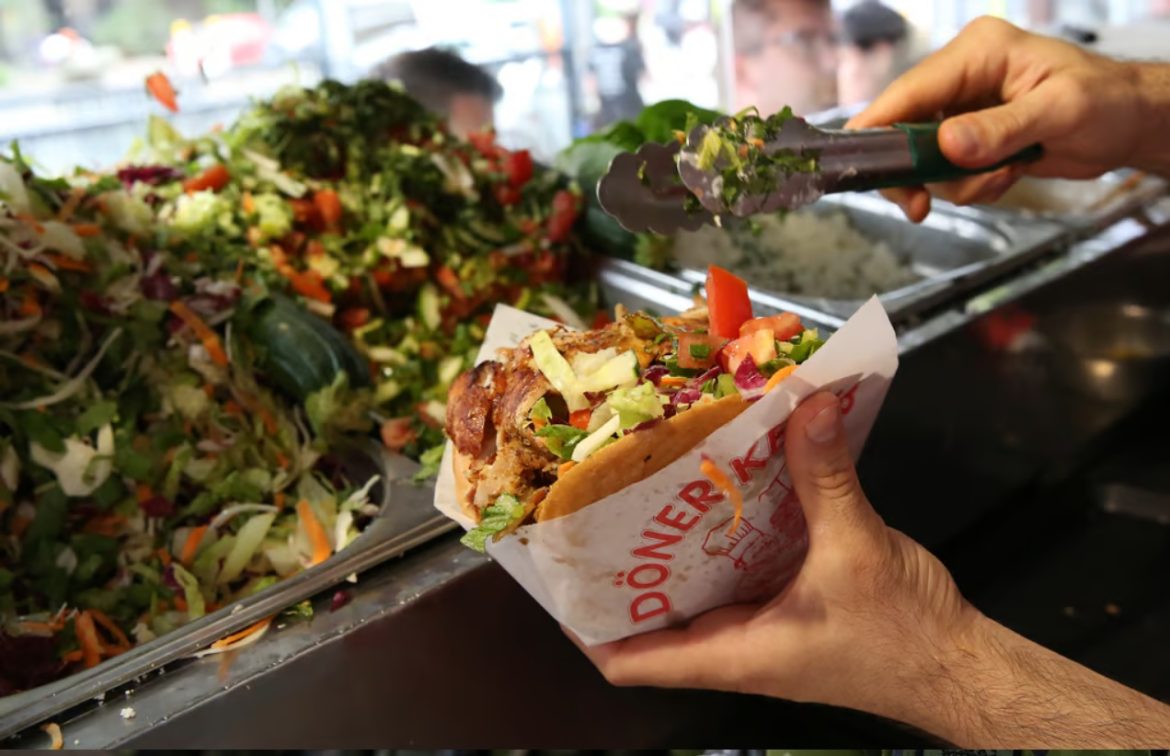Kebab shops line the streets of many German cities, particularly in Berlin, and the scent of roasting, skewered meat is never far off. According to an industry association, approximately two million doner kebabs are consumed daily in Germany, a substantial figure for a country of 83 million people. The doner kebab, invented by Turkish immigrants in West Berlin in the 1970s, has long symbolized the cultural impact of Turkish immigration in Germany.
Recently, however, the doner kebab has come to represent something else: economic distress. The price of a doner kebab has surged dramatically, sparking widespread dissatisfaction among German youth. “I used to eat doner kebab twice a week during my lunch break, but that’s not the case anymore,” said a 16-year-old high school student standing in line for a €7.50 kebab in the Berlin neighborhood of Kreuzberg. “Now I almost always buy something in the supermarket because it’s cheaper,” he added.
Another student, a 15-year-old, reminisced, “I can still remember when doner kebabs were sold for €3.50.” Neither student wanted to give their name for privacy reasons. Since 2016, doner kebab prices in Germany have increased by 75 percent, compared to a 24 percent rise in overall inflation, according to a study based on Google reviews of kebab restaurants. The increase has been particularly sharp over the past two years, with the average price rising from €5 in 2022 to €7 in 2024.
This steep rise in kebab prices has led to online calls, often tongue-in-cheek, for political leaders to intervene. “Eight euros for a doner!” one man yelled at German Chancellor Olaf Scholz in Munich in a video posted on TikTok. “Talk to Putin! I want to pay four euros for a doner. Please!” Such dissatisfaction has even prompted some politicians from the far-left Die Linke (Left) party to call for a “price brake” on doner kebabs. Kathi Gebel, a member of the Left party’s executive committee, wrote a manifesto on the subject, stating, “When young people demand: ‘Olaf, make the kebab cheaper,’ this is not an internet joke, but a serious call for help!”
The manifesto proposes setting a maximum price of €4.90 per doner kebab, which would mean subsidizing each kebab by €3, resulting in an estimated €4 billion annual cost to the state, given that 1.3 billion doner kebabs are consumed in Germany each year. These calls have been so frequent that Chancellor Olaf Scholz felt obliged to respond on TikTok. “It’s quite remarkable that I’m asked everywhere, mainly by young people, whether there shouldn’t also be a price brake for kebabs,” Scholz said earlier this year. “There won’t be a price brake. We live in a market economy. But inflation in Germany is already falling and will continue to do so.”
The rise in doner kebab prices mirrors the broader increase in the cost of goods, driven by a rise in energy and commodity prices, particularly following Russia’s full-scale invasion of Ukraine. “Commodity prices, grain but also meat, have risen. The same is true for energy. And as a result, labor costs,” said Timo Wollmershäuser, an expert on macroeconomics at Germany’s ifo institute. “Of course, this also affects the doner kebab.”
Inflation eased to 2.2 percent in June, down from 6.2 percent a year ago, according to initial estimates from the country’s federal statistical office. However, this does not mean immediate relief for doner kebab prices, which are not expected to fall but to rise less rapidly. “The price increases we have seen in recent years will be permanent,” said Wollmershäuser, attributing this to significant wage increases in recent years.
Economists also warn that implementing a doner price brake could lead to a shortage of kebabs, an unintended effect that could create further unrest given the importance of the street food in German society. “It makes no sense,” said Wollmershäuser, emphasizing that such measures could exacerbate the problem rather than solve it.




